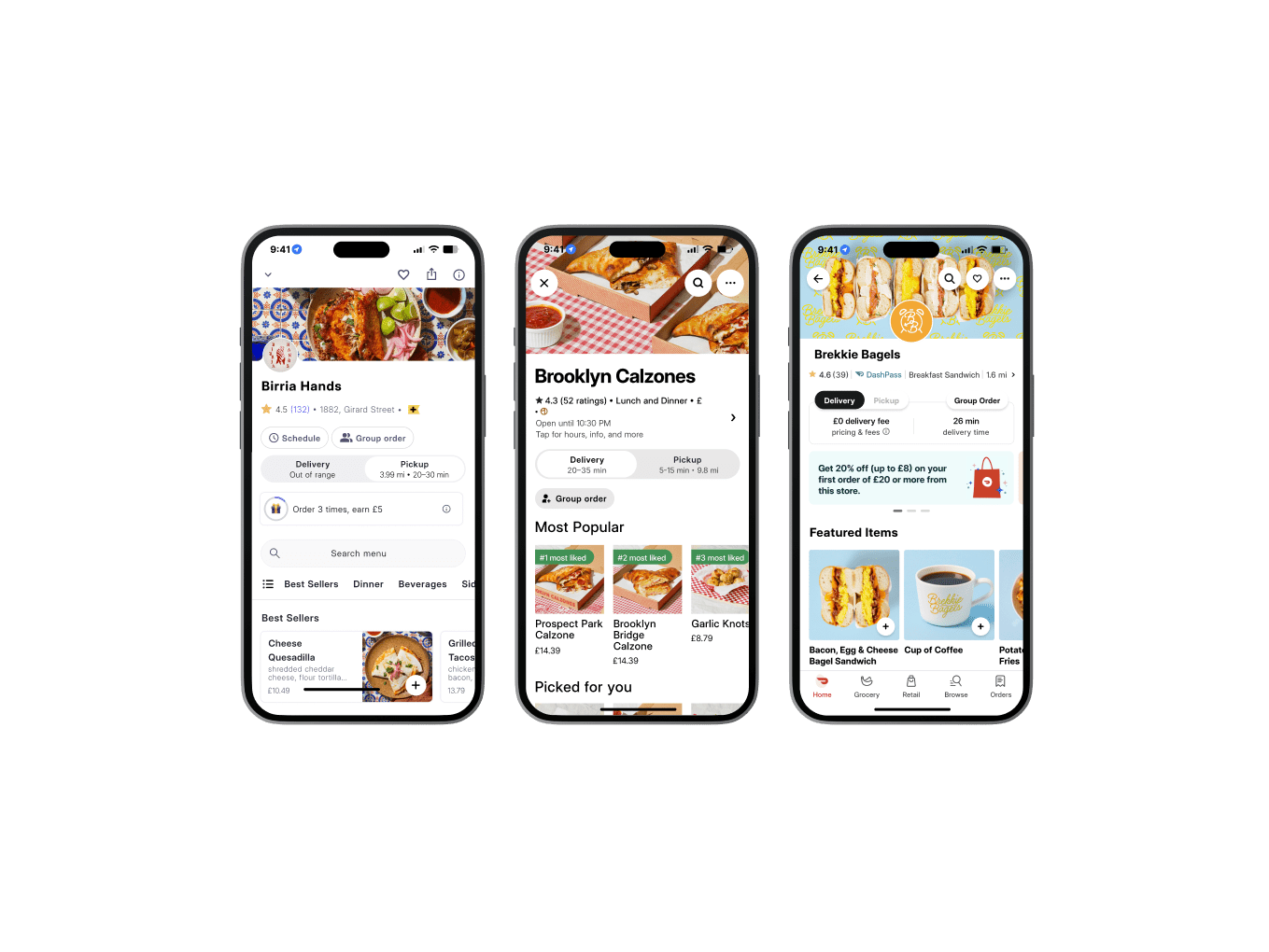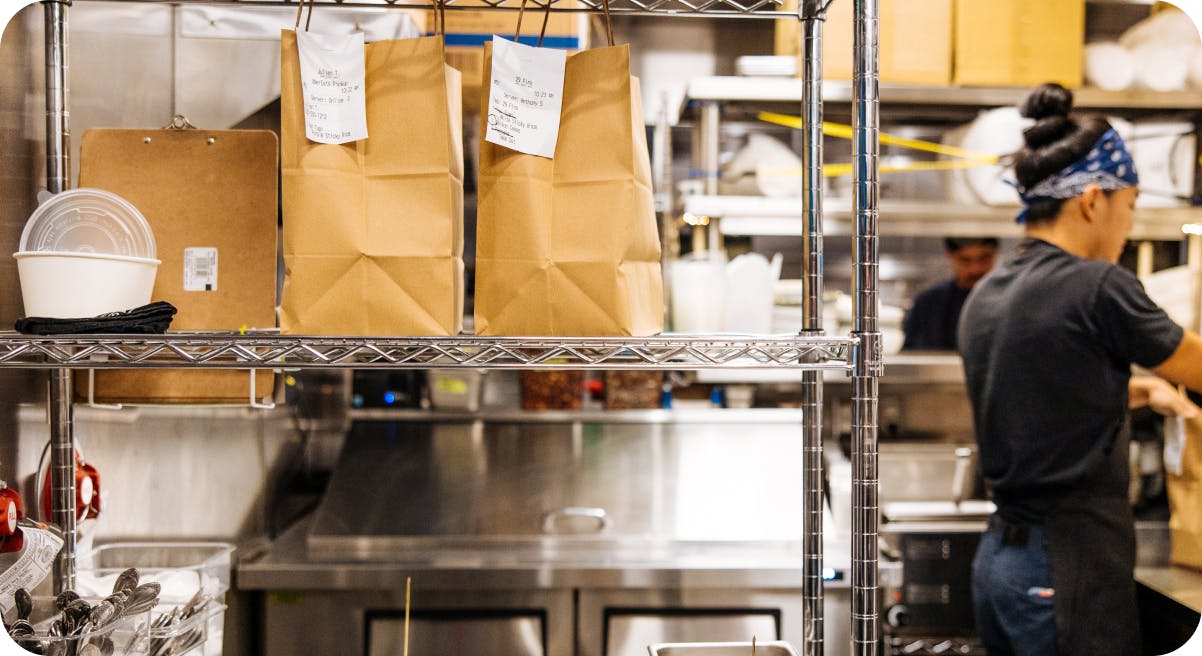
Why your restaurant needs virtual brands
The fact that the food delivery market is growing is nothing new.
The food delivery sector has been growing over the past decade, and COVID-19 related restrictions only strengthened this trend. Knowing that there are millions of diners ordering delivery and the prediction that growth will continue beyond the pandemic has encouraged many restaurants to take advantage of delivery which has also increased competition.
It’s no longer enough to simply list your restaurant on the various delivery platforms. In 2021, the secret to success is increasing your restaurant’s visibility. But how can you control your restaurant’s visibility when it feels like the delivery platform algorithm controls the ranking and in turn reach? Creating virtual brands for your restaurant is quickly becoming the solution to dominate delivery applications without a huge investment.
If you’re a restaurateur who is looking to learn more about virtual brands or considering creating one of your own, this article is for you.
Ghost Kitchens versus virtual brands
Dark kitchen,ghost kitchen,virtual restaurant... so many new concepts within the restaurant industry have emerged in the last year that it can be hard to keep up.
Ghost kitchens are spaces that are used by restaurateurs exclusively for home food delivery. Ghost kitchens don’t have hosts, waiters or dine-in seating. Also called dark kitchen or virtual restaurant, ghost kitchens can be utilised by both restaurant chains that want to create designated spaces for delivery food production and restaurants that only exist digitally.
Virtual brands, on the other hand, are digital storefronts on delivery platforms such as Uber Eats, Just Eat, and Deliveroo. That's where the name comes from: they are called "virtual" because the customer can only see and order from these restaurants online.
Virtual brands don’t necessarily come from a ghost kitchen: they can be created and fulfilled in the kitchens of establishments you already know. A single restaurant can have multiple brands in the same space and, in fact, this ability has saved many restaurants.
This means that any restaurateur can create a virtual brand today with the resources they already have.

Why should your restaurant create a virtual brand?
Today’s customers have no problem ordering food from places they haven't tried before, so creating a new brand has multiple benefits.
- Dominate the delivery platforms. Having multiple brands means multiple appearances on platforms like Uber Eats and Just Eat. If you’re currently listed on these delivery platforms, you appear 1 time on each of them. But what if you could appear 2 or 3 times?
- Increase your sales. Along the same lines, 3 appearances on each delivery platform translates to 3x the reach and potentially 3x the orders and sales.
- Optimise your kitchen space. If your kitchen has enough capacity to prepare more food, why not take advantage of it?
- Limit waste and take advantage of your current inventory. You can create a virtual brand with the ingredients you already use to optimise your inventory.
- Experiment with your kitchen. Having an additional brand will allow you to try new concepts and dishes without changing what people love about your main brand.
- Multiply your ROI. The idea is to use the resources that you already have (space, staff, ingredients) to significantly increase the return on your investment.
How to create a virtual brand in 5 steps
The magic of virtual brands is how easy it is to create them.
The whole concept revolves around making extra money with the resources you already have. Let’s dig into the 5 steps to creating a virtual brand for your restaurant.
1. Study the market
If you’re reading this article, you most likely own a restaurant that does delivery. This means that you already know your audience.
Before launching your virtual brand, it’s important to think about the diners you are looking to attract with your new offering. Head over to the delivery platforms and begin asking yourself some questions: what kind of food is popular in your area? Is there something missing in the area? Do you identify any group that is not being served?
If you see that there are multiple burger restaurants, for example, this is probably not the best idea for a virtual brand. However, it’s a reflection of the type of food that people in your area are looking for. How about launching a sandwich brand?
Remember that since your virtual brand relies on the radius of the delivery platforms, your location should guide you in making decisions. If you’re looking for some advice on what performs best in your area, the team at Otter can help you understand performance trends in your region.
2. Choose your concept
Now that you have an idea for what the market in your area is looking for, it's time to think about your current menu. What are your best performing items and how can you take advantage of them?
Maybe you offer a couple of vegetarian dishes on your menu that have been very well received. How about creating a separate vegetarian virtual brand?
Maybe your desserts are very popular and could have their own brand.
If you receive a lot of orders at dinner time, but very few during the rest of the day, you could consider offering breakfast on weekends or menus for the offices in the area at lunch time.
At this point, make sure your concept is 100% adapted to delivery. You must take into account factors such as prep times, profit margin, temperature and ease of delivery. It is best to focus on simple dishes with ingredients similar to what you already use in your main brand.
Remember that you can experiment with more than one virtual brand to get the most out of your kitchen. If you’re looking for someone to consult with on your virtual concept(s), the team at Otter will help you decide on a concept that’s optimised for delivery.
3. Build your brand
While virtual brands don’t require many complications or costs, the look and feel of your virtual brand is critical.
Your concept will only exist digitally, so it’s important to have a brand that makes you stand out on delivery platforms. Elements such as a good logo, great photography and a consistent image will help you differentiate yourself from the competition. The team at Otter can handle this area for you.
Our recommendation? Don’t forget to take advantage of your presence on social networks. Many diners might search for you on Instagram or Google before deciding to place an order for the first time.
4. Plan your operations
Now that your bases are covered, it’s time to choose your sales channels.
By existing only in the digital world, delivery platforms will be your best allies. Diners have never heard of you yet, so it’s essential to use your delivery services as a showcase to increase your visibility. Think of them as your storefronts.
To start, do a study of the platforms available in your area and decide which ones you want to work with. Consider exploring multiple different options. According to data from our clients, being present in more than 1 delivery application can increase your income by 70%.
Working with multiple platforms, however, can cause chaos in your restaurant. Especially when you handle more than one brand in the same place. Solutions like Otter will allow you to connect all your platforms, locations and brands in one tablet and visualise your aggregated data at a glance.
5. Prioritise marketing
Take advantage of delivery platform promotions, social channels, email marketing and paid advertisements to increase awareness and orders.
Here are 5 key tips to succeed with your virtual brand.
- Quality first. When working solely with delivery, prep and delivery times should be two of your key considerations. However, you should not sacrifice the quality of your dishes. Make sure you come up with a simple concept that allows your staff to manage more than one brand without impacting service levels.
- The importance of packaging. When it comes to delivery, packaging is a big part of your brand image. Containers not only allow your guests to receive their dishes properly, they are also a reflection of your identity and one of the first points of contact they will have with your concept.
- Connecting with your customers without a physical location. Because your customers will only be interacting with your brand on delivery platforms, you have an opportunity to find creative ways to turn one time orderers into loyal customers. How about including thank you notes or a promotion in each bag? Anything that allows your restaurant to show the customer that you appreciate their business will help in this area.
- Menu and photography. It's no secret that one of the keys to being successful in delivery is having high-quality food photos, especially when diners have never seen your dishes before. Focus on having good photography and a well structured menu on each of the platforms you are on to avoid confusion.
- Promotions. Promotions are one of the best tools to make yourself standout on delivery platforms. You can experiment with different ideas: promotions for regular customers, free dessert for first-time customers, or a percentage discount on your most popular dishes.
Virtual brands in action: Sweet Time
“Thanks to the excellent relationship I had with Jean (Otter Sales Executive), we created 4 virtual brands which allowed us to increase our turnover and receive all our orders on a single tablet.”
With the help of Otter, Sweet Time now runs three virtual brands at its main restaurant: Burger Factory, Poutine & Salad, and Sweet Cake. These brands qualify Sweet Time for more appearances on each delivery platform (three instead of one) and increase orders using the resources they already have: the same space, the same staff, and the same ingredients. Although Sweet Time is small in size, the restaurant now has no problem managing multiple brands, thanks to Otter. “With Otter, everything is simplified: one tablet, one printer.”
Read the story of how Sweet Time saved its business with virtual brands here.